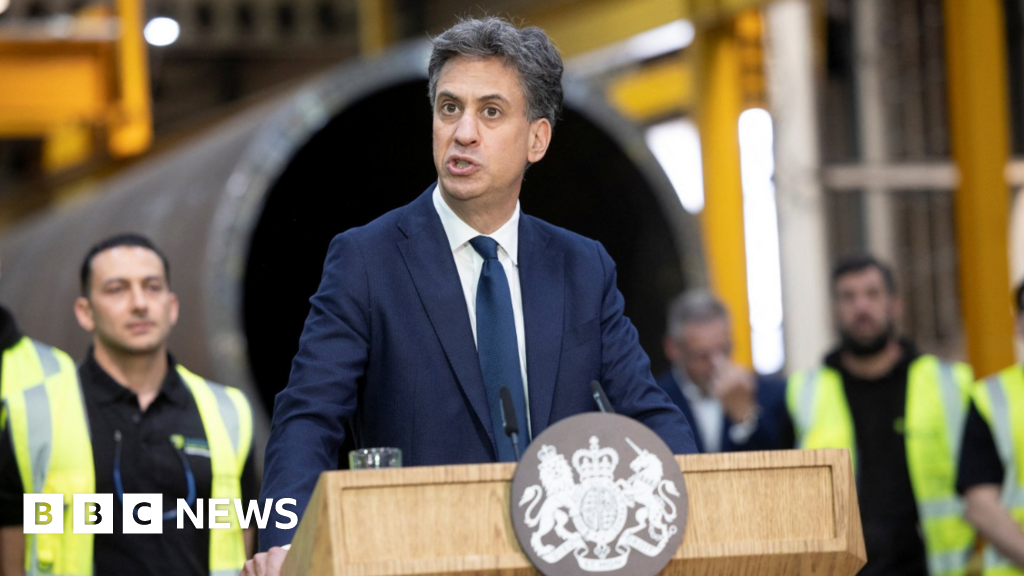Energy Secretary Ed Miliband has blamed energy price hikes this autumn on what he said was the Conservatives’ failure to invest in renewables.
But his Tory shadow, Claire Coutinho, said cheap, non-renewable energy should be prioritised over carbon reduction targets to help struggling families this winter.
Households will see an average £149 rise in their energy bills from October under the regulator’s new price cap, with Ofgem blaming heightened global tensions and extreme weather events.
The bill rises will come after Chancellor Rachel Reeves decided to scrap winter fuel payments, worth up to £300, paid to pensioners who are not in receipt of benefits or pension credit.
The Scottish government has confirmed it will follow the UK government in no longer providing winter fuel payments to all pensioners.
There is discontent within Labour, with MP Rachael Maskell urging her party to “think again” over scrapping winter fuel payments from mid-September, particularly for those just above the pension credit cut-off.
Ms Maskell told BBC Radio 4’s Today programme said she was “deeply concerned” about the decision, which she said was not in Labour’s manifesto.
Mr Miliband acknowledged the increase to £1,717 a year for “typical households” would be “deeply worrying”, but insisted lower energy bills would come with “clean, homegrown power”.
He said: “The rise in the price cap is a direct result of the failed energy policy we inherited, which has left our country at the mercy of international gas markets controlled by dictators.
“The only solution to get bills down and greater energy independence is the government’s mission for clean, homegrown power.
“That’s why we have hit the ground running, lifting the onshore wind ban, consenting unprecedented amounts of solar power and setting the largest ever budget for our renewables auction.”
However, Ms Coutinho accused Labour of running in the wrong direction.
“Instead of prioritising cheap energy, the new Labour Government are pursuing Ed Miliband’s reckless net zero targets with no thoughts to the costs,” she said.
“And far from their promise of saving families £300 off their energy bills, one of their first acts in office is to remove the Winter Fuel Payment from 10 million pensioners this winter.
“Because they weren’t honest about their plans that means millions of pensioners will have made no plans to deal with higher energy bills this winter.”
Fuel poverty charity National Energy Action (NEA) said the number of people living in fuel poverty would rise to six million this winter, and called for automatic payments to be made to the 880,000 pensioners eligible for winter fuel payments but not claiming them.
Liberal Democrat local government spokesperson Helen Morgan said too many people were being hit hard by energy costs and fuel poverty.
“After years of being clobbered by the cost of living crisis, families and pensioners will be deeply worried to see their energy bills rise dramatically again,” she said.
“This Conservative Party’s legacy has left people worse off and the new Government has to take urgent action to fix it.”
Green Party co-leader Carla Denyer said consumers were “paying high prices for a crisis not of their making”, and welcomed the lower bills promised by the government in future from its new publicly-owned energy company, GB Energy.
She said this must be bolstered with a national home insulation programme and an end to means-testing winter fuel payments so pensioners “know they can afford to keep warm”.
Octopus Energy founder Greg Jackson claimed government investment in renewables would “cut bills in every region, saving at least £2bn a year, and giving some parts of the UK the cheapest electricity in Europe”.
“The way to bring bills down is to build more cheap British wind and solar power, and to mend the market so that costs are set locally – not by global gas prices,” Mr Jackson said, adding there also needed to be “bold reform of grid connections”.

